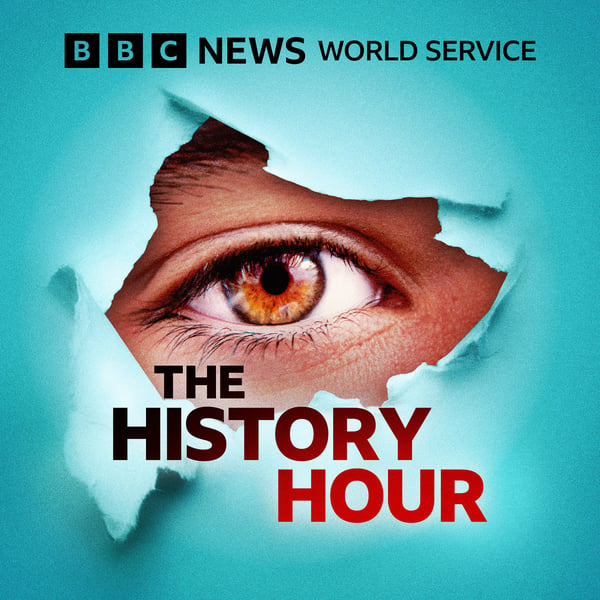World War Two on film and Africa's landmark lifestyle magazine
The History Hour
BBC
4.4 • 879 Ratings
🗓️ 18 January 2025
⏱️ 51 minutes
🧾️ Download transcript
Summary
Josephine McDermott sits in for Max Pearson presenting a collection of the week’s Witness History episodes.
We hear from the author who stumbled across the story of Oskar Schindler while shopping for a briefcase in Beverly Hills.
Our guest is Dr Anne-Marie Scholz, from the University of Bremen in Germany, who reflects on the impact of dramatizations of World War Two.
We also hear about the start of Drum magazine, credited with giving black African writers a voice in the time of Apartheid.
The devastation of the earthquake in the port city of Kobe, Japan, is recalled by a child survivor.
Plus, the New Deal created by President Franklin D Roosevelt to drag the United States from the Depression of the 1930s.
Finally, the family intervention of American former First Lady Betty Ford, which led to the world-famous rehabilitation clinic being started.
Contributors:
Thomas Keneally – author of Schindler’s Ark.
Dr Anne-Marie Scholz - author of From Fidelity to History: Film Adaptations as Cultural Events in the 20th Century.
Prospero Bailey - son of Jim Bailey on the origins of Drum magazine.
Kiho Park – survivor of the 1995 Kobe earthquake.
Adam Cohen – expert on Roosevelt's New Deal.
Susan Ford Bales – daughter of Betty Ford.
(Photo: Nazi SS troops in Germany. Credit: Getty Images)
Transcript
Click on a timestamp to play from that location
| 0:00.0 | Hello and welcome to the History Hour podcast from the BBC World Service with me, Josephine |
| 0:10.0 | McDermott, the past brought to life by those who were there. Coming up, the African Lifestyle |
| 0:15.9 | magazine sold in 12 countries in the 1950s, which broke new ground in racial equality. |
| 0:22.1 | Drum was the first to show the other side of the coin, |
| 0:24.7 | that if you have a law that does this, it means this to black people. |
| 0:29.1 | And so white people begin to take an interest. |
| 0:31.4 | And we hear from a child survivor of the devastating Kobe earthquake in Japan. |
| 0:36.4 | My first impression was, this is not joking, maybe huge truck or some monster that I never |
| 0:43.6 | seen, came to my house. |
| 0:45.6 | But first, you may well have seen the Stephen Spielberg film, Schindler's List. |
| 0:50.8 | It told the story of the Nazi party member Oscar Schindler, who saved more than |
| 0:55.3 | 1,000 Jews from the Holocaust. But did you know that it was based on a book which came about |
| 1:01.3 | because in 1980, the author Thomas Caneli had a broken briefcase, as he tells Rachel Naylor. |
| 1:08.9 | It's October 1980 and we're in Beverly Hills in the United States. |
| 1:13.0 | Sydney-born novelist Thomas Caneli's briefcase has broken |
| 1:15.6 | and he's browsing replacements outside the handbag studio, |
| 1:18.8 | a shop with a chatty owner. |
| 1:20.0 | A man came out and addressed me on the grounds that he said |
| 1:25.9 | I was terrified of him for some reason because I wouldn't go |
| 1:30.3 | in his air-conditioned shop. This man was, in fact, a man named Leopold Fefferberg. |
| 1:39.2 | Leopold, a Polish Jew, recognizes Thomas as a writer and tells him he has a story for him. |
| 1:44.9 | Thomas is dubious. |
... |
Transcript will be available on the free plan in -68 days. Upgrade to see the full transcript now.
Disclaimer: The podcast and artwork embedded on this page are from BBC, and are the property of its owner and not affiliated with or endorsed by Tapesearch.
Generated transcripts are the property of BBC and are distributed freely under the Fair Use doctrine. Transcripts generated by Tapesearch are not guaranteed to be accurate.
Copyright © Tapesearch 2025.

